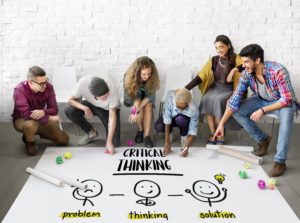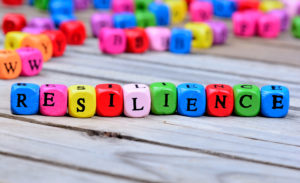By Chia Suan Chong for EtonX
After a whirlwind of a year, the summer holidays are a great opportunity to relax and recharge. However, if you are looking for productive ways to spend your time we have a couple of ideas for this summer which can help you feel achieved and fulfilled.
Here are some ideas on how to make the most out of your summer:
1. Conquer your fears
What are you afraid of? Heights? Snakes? A room full of unfamiliar people? Public speaking? Facing your fears is sometimes the best way to conquer them. Reflect on the reasons for your fears and what you might benefit from getting over them. Then create an action plan to tackle your fear gradually. If you’re afraid of heights, you might want to start by rolling down a small hill and looking out of the window of a 10-storey building before trying to book yourself in for a skydiving experience. If public speaking is what terrifies you, give a short speech to your family or practise speaking in a safe environment where your audience might share your fear.
Always remember to evaluate the risks involved, think about escape mechanisms if you turn out to have taken on too much and avoid anything that will put you in danger. The key goal should be to stretch yourself and confront your fears, not to confirm them by frightening yourself.

2. Declutter your tech
Are you feeling overwhelmed by the amount of open tabs on your laptop or useless screenshots on your phone? Is your social media feed filled with photos you’re not interested in from people you don’t really know? It may be time for a tech declutter.
Most of this will not take much effort but can be time-consuming. Ensure that your photos and videos are saved in a cloud or on your laptop/hard drive and dedicate some time to deleting the unnecessary media and apps on your phone.
Sit at your laptop and close down tabs and delete files you no longer need. Use online tools like Diigo to bookmark and tag webpages you want to keep or Google Keep to help organise your notes.
Clean up your social media accounts by going through your photos and deleting any that might be inappropriate (ask yourself: will this photo stop someone from giving me a job in the future?). Unfollow or unfriend people who are not a useful addition to your network and streamline your social media accounts.
Like your possessions, your tech should bring you joy not annoyance.

3. Volunteer somewhere/help someone
When we volunteer our time to help others, we fill ourselves with a sense of purpose and knowledge that we are making a difference. In the process, we are also learning new skills and getting to know people we might not normally spend time with.
And there are lots of different ways you can volunteer even during the pandemic. Although things like going to animal shelters or volunteering abroad might not be feasible right now, you should look for online organisations looking for volunteers. This could take a form of a refugee support centre looking for young people to practice English with their clients, but the possibilities are vast. Check out websites such as UN Volunteers to get an idea of what options are available to you.
You should consider how you’d like to contribute and make that commitment.

4. Improve your critical thinking skills
Sir Francis Bacon famously said, “Knowledge is power.” But Sir Francis Bacon didn’t have the internet back in 1597. With the constant information overload that we experience everyday, it is easy to tune out information that is difficult to process. Ironically, the more information that is out there, the more we surround ourselves with familiar things that we already know. After all, how can we gain new knowledge when we don’t know what to trust and what not to trust? Critical thinking is the ability to look at information, and very clearly and logically think, observe and make a judgment. It is a key skill needed in our everyday lives so how can we use the time we have during the summer to improve this skill?
Try and read about something new everyday and develop a questioning mind. When encountering a new argument, ask yourself the 5 Ws and 1 H: Who said it? What did they say? Where did they say it? When did they say it? Why did they say it? How did they say it?
Reflect on your thoughts and your assumptions, and discuss them with your family and friends.

5. Cook an elaborate meal for your family
During the school term, your family members often work hard to ensure that everyone is fed and looked after. It might be nice during the summer holidays to show your appreciation by planning and cooking a meal for them in return. Make a date with the family and ‘book’ the kitchen for your personal use. Decide on what dishes you’d be making, find the recipes, buy the ingredients beforehand, and get ready to impress them.As a bonus, you also get to practise your organisational skills and develop your independence.

6. Take a summer course
You want to learn something this summer but you don’t know where to start. You want to do a course but you don’t want to spend your entire summer on it. Consider taking a short summer course on something you don’t get to learn about at school. If the course is virtual, like the summer courses here at EtonX, you don’t even have to leave your home to do it.

7. Write something longer than a short message
Think back to the last time you wrote something. What was it? Was it a Whatsapp message? A scribble on a Snapchat or Instagram photo? A one-sentence post on someone’s wall? When was the last time you wrote something longer that wasn’t for school/university? This summer, share your thoughts in a blog, write a creative story, have fun with rhymes in a beautiful poem or a funny limerick, or write a letter to someone. Enjoy putting your thoughts and feelings into words and put them away so that you can re-read them in years to come.

8. Build resilience
Things don’t always go as planned and sometimes we are confronted with failure. People without resilience might dwell on their problems, give up and become extremely unhappy. Those with resilience, however, are able to pick themselves up when they fall, and carry on. By building our resilience, we are learning that difficulties are a part of life and often, doing things takes time and effort. We see that failure and mistakes are part of the process, and that we need to embrace them and enjoy the journey. In building resilience, we are teaching ourselves to manage the daily stresses and challenges we face.
So how can we develop resilience this summer? Try doing something that takes time and effort – something that might be challenging at first but with perseverance, can be extremely satisfying: learn to play a musical instrument, speak a new language, go rock climbing or work towards running in a long-distance race. And have a buddy with you so you can support each other when you need it.

9. Get work experience
Many employers complain about young employees who enter the workforce without strong employability skills (e.g. problem-solving skills, teamwork skills, positive attitude). Some attribute this to the fact that the youth of today are not taking on as many holiday jobs as the generations before them: jobs that might help cultivate these life skills.
This year it might be more challenging to find work experience, however there are many companies who have moved their schemes online, allowing people to join from the comfort of their own homes. Have a think about companies for which you might want to work for in the future and do some research to find out if they have any online work experience opportunities available.
You might not have many more summers to go before you enter the workforce, so let’s make these summer holidays count.

Happy holidays!
